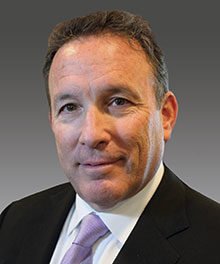The CEO Shuffle

So Adam Neumann finally stepped down as CEO of We Work. The only surprising thing is that it didn’t happen sooner.
Investors love visionary, larger-than-life CEOs…until their antics become a little too colorful. It’ll be interesting to see what the company’s new co-CEOs do to turn things around.
It’s going to be a heavy lift. We Work has a big problem no company can transcend: it’s got a flawed business model. The company is making big long-term commitments to lease space – but bringing in very little guaranteed revenue through its short-term leases to offset the risk. Investors couldn’t help but notice this, seeing as the company lost more than $3 billion in the last three years.
Neumann, known for going barefoot in the office and sharing his dream of becoming the world’s first trillionaire, got away with a lot through sheer boldness. No one can fault him for dreaming big and trying to sell everyone on his vision. That’s part of an entrepreneur’s DNA.
But eventually, there has to be some substance behind the charisma. The numbers have to add up. The company’s past transactions have to stand up to public scrutiny. They didn’t here.
Neumann is hardly the only high-profile entrepreneur whose tendency to get carried away got him in trouble. Elon Musk (Tesla) and Travis Kalanick (Uber) come to mind. They’re never boring, but they have a way of keeping investors up at night.
Maybe it’s my background in accounting, but when I see headlines about visionary entrepreneurs like this, it reminds me of how important it is to be grounded in the practicalities of growing a strong business, including operations and finance. Like all companies, start-ups need a reality check on big ideas before anything is acted out on a public stage.
It will be interesting to see how long We Work keeps CFO Artie Minson and parent company We’s vice chairman Sebastian Gunningham in place as co-CEOs before the board brings in another cinematic personality to try to get the IPO back on track, assuming they are still in business and don’t crash and burn. Maybe they’d be better off forgetting the whole idea and turning it into a mini-series for Netflix instead.
With a number of venture-backed companies still gunning for, or recently completing, IPOs — Peloton, KNOX, Beyond Meat — we’re likely to see more drama in the coming months. Here at Marcum, I’ve found that some of the most exciting businesses with the strongest fundamentals are the ones we never see in the headlines. They’re middle-market firms whose CEOs are thoughtfully leading their teams to accomplish incredible things – often in local markets far from Silicon Valley and New York. Frequently, the outstanding leadership of their CEOs is visible only to their internal teams – and the CEOs are fine with that. They’re focused on growing their businesses and preparing for whatever comes next. That’s why these firms are the backbone of our economy.
I believe we need all kinds of companies. A lot of innovation wouldn’t happen without the dreamers who shoot for the moon (Musk, again), even if they do produce epic fails at times. At the same time, many people wouldn’t have jobs without the disciplined entrepreneurs who’ve created the traditional middle-market firms so many communities depend on. Even with our economy in the midst of massive shifts – and more to come as we get closer to the 2020 election – there’s plenty of room for both types of companies.
I’m finishing this column Thursday night, overlooking Alcatraz Island (fortunately, I’m not staying there) in San Francisco. We just finished our State of the Firm meeting for our Northern California offices. 6 down, 5 to go. To the team I’ve spent a good part of the last 2 weeks with — Peter Scavuzzo, Ron Storch, Molly Crane, Saran Johnson, Kristen Caserta and Steve Callanan — thanks for your help and company. As you read this we are on a plane traveling back to NY.
Monday and Tuesday will be Rosh Hashanah, the Jewish New Year. To those of you who observe, L’Shana Tova.
